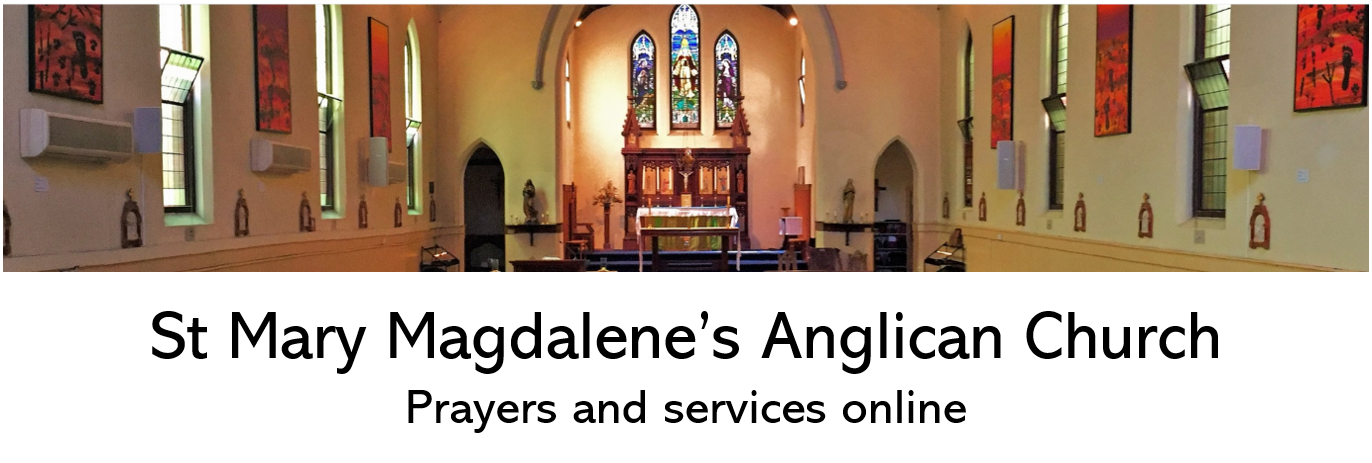Preparing for meditation
Find a place to sit comfortably. Mobile phone on silent.
Take your time. Breathe in and out a few times, slowing down …
Don't try too hard. Relax. Be open.
Prayer isn't telling what God should be doing but becoming aware of what God is already doing.
"The best prayer is to rest in the goodness of God and to let that goodness reach right down to your lowest place of need." (Julian of Norwich)
When you seem ready, begin.
You don't have to finish the exercise now, or today.
If and when something arrests your attention, stay there. Savour the words. Let them speak to you.
That may be enough for the next few minutes.
Clodovis Boff
To me it seems as clear as day that there is no future for the Church except at the side of those who do not have the present, but only the future - the oppressed.
Jurgen Moltmann
The saving and liberating potential of the historical recollection of Christ... first becomes evident through participation in the history of suffering in the present, by taking the side of the victims of the "modern world".

John Taylor argues that the New Testament picture of the caring ministry of the followers of Christ may be summarized as follows:
- To notice the unnoticed.
- To celebrate the non-celebrities.
- To question the unquestioned.
- To empower the powerless.
- To put in touch the out of touch.
We are often shocked by the world we live in, and perplexed about how to respond to it. The face of poverty – in all its many guises of weakness, failure, emptiness, vulnerability, inadequacy and shame – is not always the place through which we expect God to speak. By getting in touch with where you are poor, you may be able to accept that this is the right place for you (“blessed are the poor in spirit”) and where you can be taught by God to find God in the face of the poorest and the weakest.
St Paul talks of his experience of God saying to him “My grace is sufficient for you,” so Paul could say “whenever I am weak, then I am strong.” (2 Corinthians 12:9-10)

But before asking: What can I do? I need to ask: What can I be? How can I be? How can I be conscious of what is going on? How can I be real? How can I be prayerful?
I need to understand that I am part of the problem.
How can I be attentive? How can I remember that God is always wanting to do a new thing, that in whatever situation I find myself, is there another way of seeing things? Another perspective? An imaginative, attractive, alternative view, that is true, free and hopeful?
How can I be and do and speak the truth?
Whose am I? To whom do I belong? For whom do I work and live? And what values do I live by?
Is my image of God a creative, hopeful, life-giving one? Is God all energy and generosity at the heart of all that is?
What needs to change in me for me to begin to see – not only through my eyes as clearly as I can – but through God’s eyes?

Thomas Merton had, it has been said, a Franciscan soul, a Cistercian heart, a Celtic spirit, a Zen mind. This rebel saint, this eloquent Trappist and active contemplative, this very human, holy man, was a contemporary of “Auschwitz, Hiroshima, Vietnam and the Watts [racial] riots”- events “about which I was not consulted….[but] in which I am deeply and personally involved”.
Instead of loving what you think is peace, love other [people] and love God above all. And instead of hating the people you think are warmongers, hate the appetites and the disorder in your own soul, which are the causes of war. If you love peace, then hate injustice, hate tyranny, hate greed- but hate these things in yourself, not in another.
In the process of this change [of self-centred love into an ongoing, other-centred love] the individual ego was seen to be illusory and dissolved itself , and in place of the self-centred ego came the Christian person, who was no longer just the individual but was Christ dwelling in each one. So in each one of us the Christian person is that which is ultimately open to all other persons, because ultimately all other persons are Christ.












